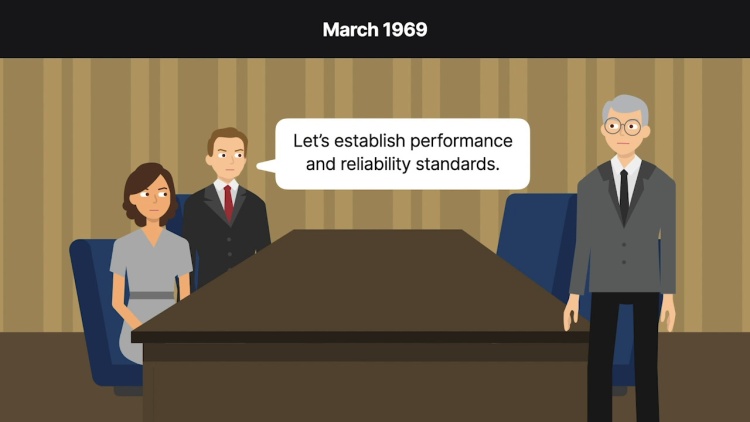AMF, Inc. v. McDonald’s Corp.
United States Court of Appeals for the Seventh Circuit
536 F.2d 1167 (1976)
- Written by Megan Petersen, JD
Facts
AMF, Inc. (plaintiff) manufactured computerized cash registers. McDonald’s Corp. (defendant) operated a national chain of restaurants. In April 1968, McDonald’s paid $20,385.28 to AMF for a prototype computerized cash register, which was installed in McDonald’s Elk Grove, Illinois restaurant. McDonald’s later ordered 16 computerized cash registers from AMF for its company-owned restaurants and seven additional computerized cash registers from AMF for restaurants owned by its licensees. AMF’s prototype in McDonald’s Elk Grove restaurant began having many problems and was ultimately removed in April 1969. McDonald’s requested that AMF develop a set of performance and reliability standards for the future computerized cash registers ordered by McDonald’s. On May 1, 1969, AMF provided unsatisfactory performance and reliability standards. AMF stated that it did not have a working machine and could not produce one within a reasonable time because its factory employees were too inexperienced. Additionally, AMF requested that McDonald’s initially reduce its order from 23 machines to five. McDonald’s did not accept these terms, and both McDonald’s and AMF agreed that McDonald’s would cancel its order for 23 computerized cash registers because AMF was unable to perform its obligations under the contract. On July 29, 1969, McDonald’s officially repudiated its contract with AMF. McDonald’s brought suit against AMF in federal district court, seeking to recover its $20,385.28 purchase price for the AMF prototype. AMF also filed suit against McDonald’s in federal district court, seeking damages for the alleged wrongful repudiation by McDonald’s of its contract to purchase 23 computerized cash registers from AMF. The two cases were tried together. The district court held that McDonald’s was not entitled to recover its $20,385.28 purchase price for the AMF prototype. The district court also held that McDonald’s did not wrongfully repudiate its contract with AMF, and the court denied AMF’s request for damages. AMF appealed.
Rule of Law
Issue
Holding and Reasoning (Cummings, J.)
What to do next…
Here's why 907,000 law students have relied on our case briefs:
- Written by law professors and practitioners, not other law students. 47,100 briefs, keyed to 996 casebooks. Top-notch customer support.
- The right amount of information, includes the facts, issues, rule of law, holding and reasoning, and any concurrences and dissents.
- Access in your classes, works on your mobile and tablet. Massive library of related video lessons and high quality multiple-choice questions.
- Easy to use, uniform format for every case brief. Written in plain English, not in legalese. Our briefs summarize and simplify; they don’t just repeat the court’s language.





